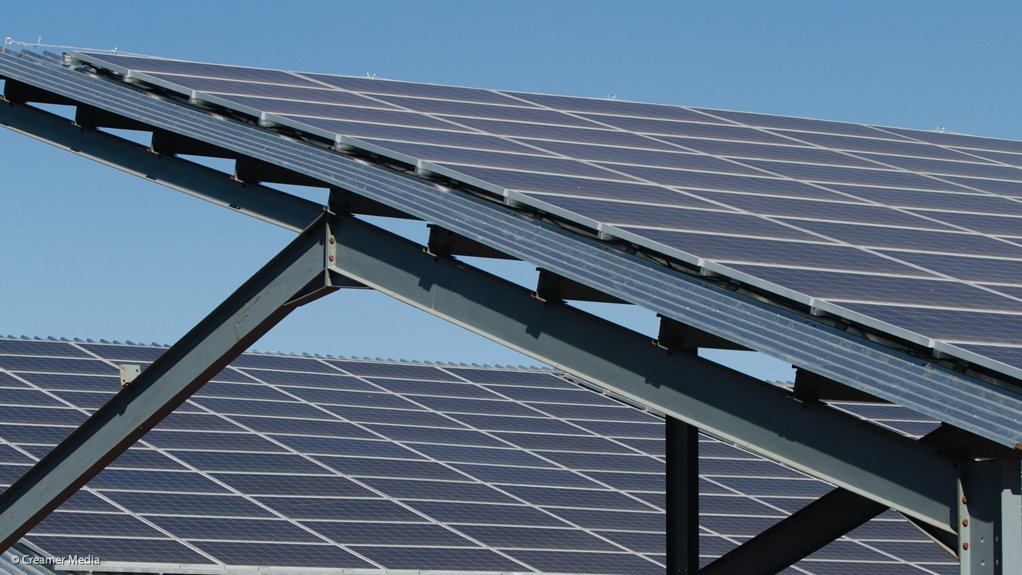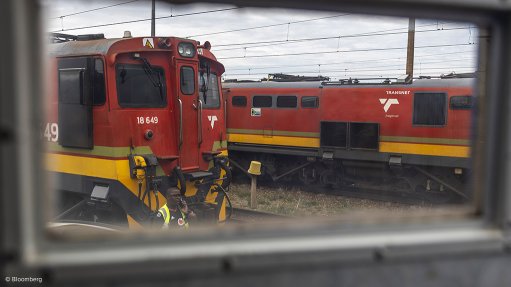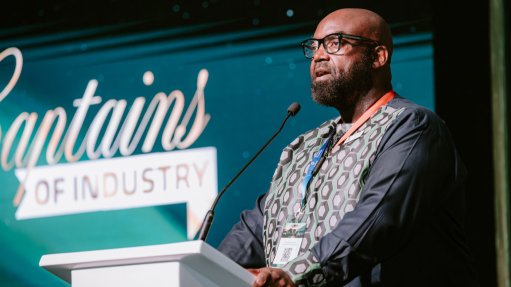Utilities that can provide services will thrive in a disrupted energy sector
Municipal utilities and distributors will have to "provide more than one product" and will have to develop new services and business models to effectively serve the market, such as by reselling and wheeling power between producers and consumers.
These are some of the views presented during the first in a series of webinars jointly hosted by municipal organisation the Association of Municipal Electricity Utilities (AMEU) and industry organisation the South African Institute of Electrical Engineers (SAIEE) on August 10 to prepare South Africa's energy utilities for the changes and disruptions, experienced worldwide, in the energy industry.
"The current electricity distribution system in South Africa is no longer fit for purpose to provide sustainable, reliable power. Most energy systems work in an inflexible hub-and-spoke model, but growing renewable power, which is not dispatchable unless there is also affordable energy storage, is driving change," said AMEU strategic adviser Vally Padayachee.
The way energy was used was also changing, as was the pattern of demand and supply, and the near-instant movement of energy made it extremely difficult to control from a distribution perspective. To avoid blackouts, there was a need to drastically improve the architecture of the system, he added during the 'Digital Municipal Distribution Utility of the Future' webinar.
A study by US education institution the Massachusetts Institute of Technology showed that, with more distributed energy technologies, flexible demand is coming into the landscape and, in many cases, so are resources. Ubiquitous information and communications technology systems will also be needed.
South Africa's municipal utilities and State-owned Eskom would have to accommodate these changes, especially to prevail in the face of the current electricity crisis, Padayachee said.
"The power sector is in the midst of a transformation, hence the need for future-proofing. The power system is becoming more distributed and digitalised, and the resource mix is becoming more renewable and more integrated with other key sectors," he noted.
Key success factors for utilities to provide services in the changing market include grid modernisation and adaptation to distributed energy resources, as well as the customer-centric evolution of the utilities.
Flexible generation would also be important, as would new business models, underpinned by digitalisation, Padayachee highlighted.
Flexible technologies would be focused on demand-side response, including flexible generation. Further, resilience and energy storage would play a greater role in future-proof utilities, he added.
Meanwhile, the distribution sector was key to the transformation of the energy system and must take into consideration how distribution businesses must adapt and what shape a distribution business in the future would take, said Eskom Distribution senior manager Malcolm van Harte.
"Key to the digital revolution is that data is king and the question is how to use data to transform for the new energy ecosystem," he said.
Data will enable utilities to make better decisions and includes a large range of data, not only from utilities' equipment, but also from the broader market, to manage an electricity network more effectively.
Similarly, there would be greater demand for data to manage virtual power stations, which were used as aggregated models for distributed generation, as power would be sourced from different locations, he added.
"The intermittency of power sources poses a challenge to the distribution side of the energy system. There must be interoperability of multiple assets on the system and flexible resources and services. This means the amount of data consumed will be significant and how it is used will be critical for the distribution industry," Van Harte noted.
Similarly, digital systems in the distribution industry will need to enable remote engineering, corporate governance and customer choice, as well as being a key driver in achieving a higher efficiency value chain, he added.
There is, however, a serious backlog in distribution infrastructure.
"We must map out a way to address this and to provide new market entrants with access, as this infrastructure is a future revenue stream that the industry must get right," said independent energy consultant Dr Willie de Beer.
Municipal utilities in South Africa battled to do business owing to negative public perceptions, which led to low investor confidence and investment. The industry must further ensure it was not dependent on subsidies from external sources to be able to function in the future, he stressed.
"We are at a fundamental point where planning for the future is not last year plus 5%. When determining what a future-proof municipal power utility will look like, it is clear that it is not optional and utilities must leverage their asset base, and cannot rely only on laws, but must actively investigate potential new services," he said.
If an asset is not serving a function in the future dynamic landscape, it will not be effective. The industry, therefore, needs to look at every opportunity for energy wheeling and needs to ensure assets are technologically enabled to improve visibility, functionality and use.
"We believe the preferred future can be created if we realistically work according to our strengths and the changing nature of our business. If we cannot do distribution, the energy industry will run into serious problems.
"We need to map out a future-proof distribution industry, which is also moving from a linear to a nonlinear ecosystem. Customers and the marketplace need to be top of mind for network service providers, whether private or public. Utilities need to leverage what they have as best they can," advised De Beer.
Comments
Press Office
Announcements
What's On
Subscribe to improve your user experience...
Option 1 (equivalent of R125 a month):
Receive a weekly copy of Creamer Media's Engineering News & Mining Weekly magazine
(print copy for those in South Africa and e-magazine for those outside of South Africa)
Receive daily email newsletters
Access to full search results
Access archive of magazine back copies
Access to Projects in Progress
Access to ONE Research Report of your choice in PDF format
Option 2 (equivalent of R375 a month):
All benefits from Option 1
PLUS
Access to Creamer Media's Research Channel Africa for ALL Research Reports, in PDF format, on various industrial and mining sectors
including Electricity; Water; Energy Transition; Hydrogen; Roads, Rail and Ports; Coal; Gold; Platinum; Battery Metals; etc.
Already a subscriber?
Forgotten your password?
Receive weekly copy of Creamer Media's Engineering News & Mining Weekly magazine (print copy for those in South Africa and e-magazine for those outside of South Africa)
➕
Recieve daily email newsletters
➕
Access to full search results
➕
Access archive of magazine back copies
➕
Access to Projects in Progress
➕
Access to ONE Research Report of your choice in PDF format
RESEARCH CHANNEL AFRICA
R4500 (equivalent of R375 a month)
SUBSCRIBEAll benefits from Option 1
➕
Access to Creamer Media's Research Channel Africa for ALL Research Reports on various industrial and mining sectors, in PDF format, including on:
Electricity
➕
Water
➕
Energy Transition
➕
Hydrogen
➕
Roads, Rail and Ports
➕
Coal
➕
Gold
➕
Platinum
➕
Battery Metals
➕
etc.
Receive all benefits from Option 1 or Option 2 delivered to numerous people at your company
➕
Multiple User names and Passwords for simultaneous log-ins
➕
Intranet integration access to all in your organisation



















